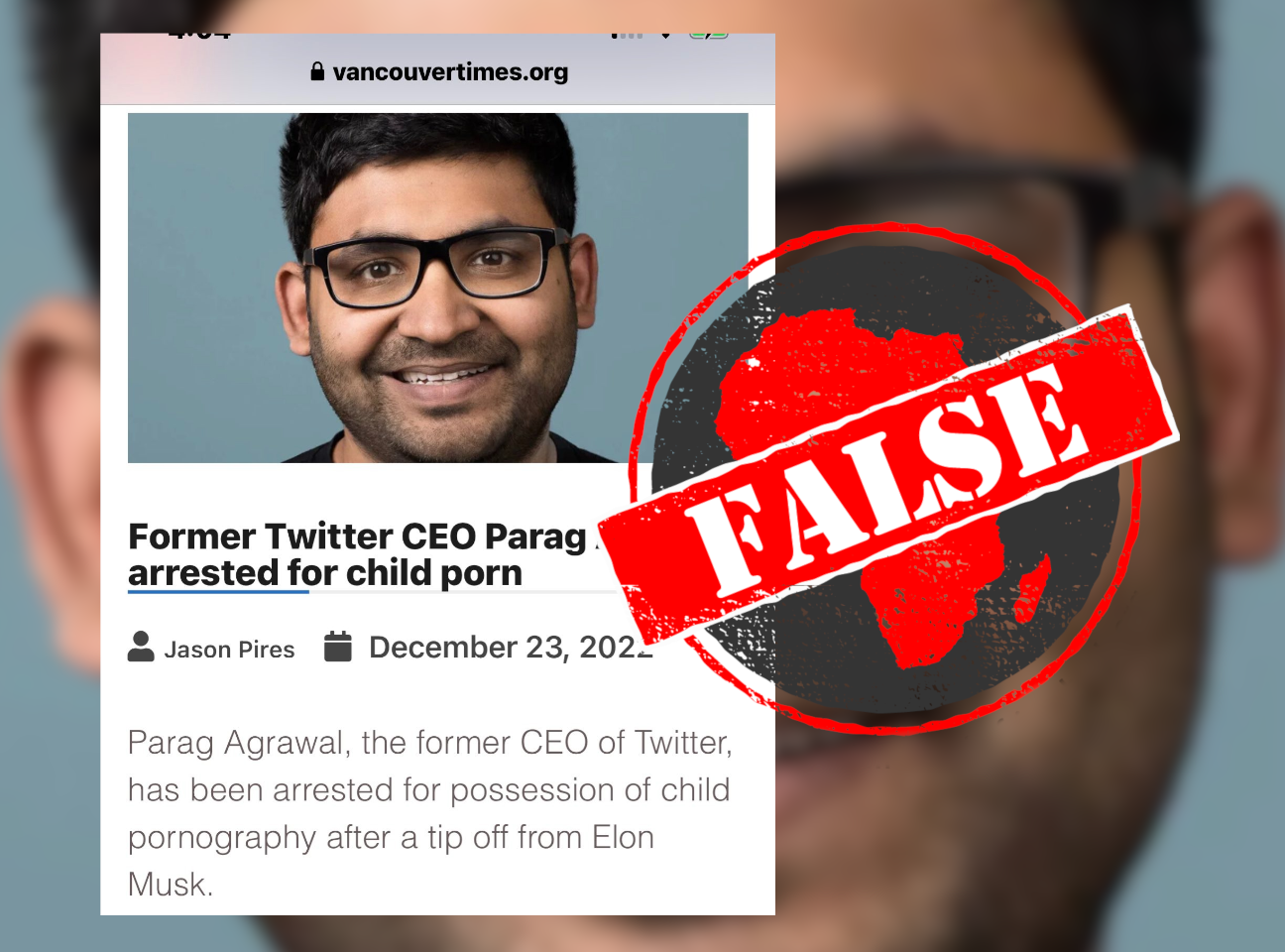IN SHORT: A dodgy website claimed former Twitter CEO Parag Agrawal, fired by Elon Musk in October 2022, had been arrested for possessing child porn. But as soon as the website’s allegation was fact-checked, it claimed it was just “satire”. It’s not. This is an example of the “satire” label being used as an excuse for false information.
“Parag Agrawal, the former CEO of Twitter, has been arrested for possession of child pornography after a tip off from Elon Musk,” reads a screenshot of what seems to be a news article circulating on social media in December 2022.
The screenshot shows the address of a website called Vancouver Times. Vancouver is a city in southwestern Canada, near the country’s border with the USA.
Parag Agrawal succeeded Twitter founder Jack Dorsey as chief executive of the social media company in November 2021.
On 28 October 2022, billionaire Elon Musk took control of Twitter after buying the company for US$44 billion. Within hours, he fired Agrawal and other top Twitter executives.
But has Agrawal now been arrested for possessing child pornography?

Satire circulated as real news is disinformation
Africa Check found the original article on the Vancouver Times website.
Its second paragraph reads: “The executive was arrested at his home in California by the FBI. His lawyer has stated to the Vancouver Times that he plans on pleading not guilty. He is expected to be released on bail.”
It adds: “The executive not only collected child abuse material off of Twitter and other social media platforms, he turned a blind eye to users that shared the same material on the social media platform.
“Twitter was a haven for child porn until Elon Musk took over.”
But a couple of lines down, the article gets odd.
It reads: “UPDATE: Fact-checkers wasted their time ‘fact-checking’ this obvious satire article. To ease confusion, the article has been added to the satire section, and a note has been added to the bottom of the article.”
The note at the bottom? “This is a satire article. For more information on our website, go to the About Us section or read the Disclaimer.”
But the article isn’t satire. It’s simply disinformation.
Collins dictionary defines satire as “the use of humour or exaggeration in order to show how foolish or wicked some people's behaviour or ideas are”. The article doesn’t fit this definition.
The screenshot was circulated online without any indication that it was satire. And the Vancouver Times only amended its article to include the “satire” disclaimer after its claim was fact-checked by AFP, Snopes and others.
Republish our content for free
For publishers: what to do if your post is rated false
A fact-checker has rated your Facebook or Instagram post as “false”, “altered”, “partly false” or “missing context”. This could have serious consequences. What do you do?
Click on our guide for the steps you should follow.
Publishers guideAfrica Check teams up with Facebook
Africa Check is a partner in Meta's third-party fact-checking programme to help stop the spread of false information on social media.
The content we rate as “false” will be downgraded on Facebook and Instagram. This means fewer people will see it.
You can also help identify false information on Facebook. This guide explains how.


Add new comment